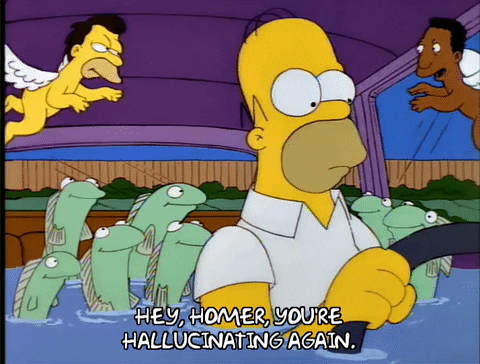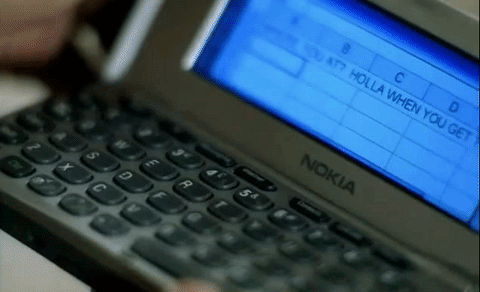Time Well Spent

Recently, I've been thinking a lot about how my smartphone habits have changed over the years. Before I went on my road trip across the country, I was an absolute Twitter fiend. I had to know what was going on at all times so much so that the app icon had a prominent spot on my device's home screen.
However, during the trip, I made a conscious effort to disconnect and really try and enjoy the moments for what they were and not save them for future posterity. I do believe that fundamentally rewired my brain for the better, because ever since then, my social media habits have become infinitely better.
I moved all my apps except the most essential - WhatsApp, Calendar, Maps, Phone, Camera, Podcasts, and Spotify - off my home screen and away into my app drawer. The idea was out-of-sight-out-of-mind and to be honest, it worked. I stopped checking my feeds every five minutes because the icons that were immediately accessible did not provide that same dopamine rush I'd normally otherwise receive.
And I think that I'm not the only one that's thinking about this. In fact, I know that I'm not the only one that's thinking about how smartphones and all the various apps we use on a daily basis have rewired our brains. I can think of three examples I experience all within the last 72 hours.
The first was a podcast. It was the May 8th episode of The Verge's Why'd You Push That Button on push notifications. For a long time, I have been considering purchasing a smart watch because I thought it would fundamentally improve my life. Being able to triage all those notifications without actually having to dive into them on my phone sounded like a great idea, until I listened to this episode. What I hadn't thought about before this was the importance of notifications in the first place. Which ones are the ones I actually care about, and which ones just constitute noise? Which are the ones I need to know about and which are the ones that I can disable entirely? When I began to think about it in that manner, I realized that almost 90% of my notifications are noise, and I'm spending more time sifting through that noise than I am actually acting on the notifications that matter.
In that particular podcast episode, the co-hosts talk with John Herrman of The New York Times and his February 27, 2018 article on How Tiny Red Dots Took Over Your Life. "We've all met red dots that existed only to inform you of the existence of other red dots, new dots, dots with almost no meaning at all" (Herrman, New York Times). It's an insightful piece on the power that notifications have over us, and how we've been tricked into thinking we're engaging meaningfully with the world around us when in actuality, we're just engaging with our devices instead.
The second was a conversation with a friend of mine over dinner. I was telling him how I had recently tried to search him up on LinkedIn as a referral to a friend and how I was unable to do so, and how I had quickly realized he was nowhere to be found online at all. He mentioned how he had reached a point when he was only feeling happy and satisfied when he was browsing his social feeds on his phone, and how he hated that feeling. So rather than be tempted by the ever present lure of online social interaction, he opted for the nuclear route and deleted his entire online social presence.
That got me thinking about the third experience, because earlier that same day, Google announced a new initiative that will launch with their newest version of Android, Android P, later this year called Digital Well Being. Essentially, in Android P, your phone will track how much you use the device and how often you use certain apps. "There’s a new Android Dashboard, where you can track how you’re spending your time onscreen. An App Timer to set limits on how long you can spend in certain apps. A new gesture, called “Shush,” switches your phone into Do Not Disturb when you set your phone facedown; a “Wind Down” mode flips your screen to grayscale as soon as it’s bedtime" (Waite, Wired). What stood out to me is that we live in a world now in which this is deemed necessary by the very same manufacturers that helped to make their own devices so addictive in the first place.
My friend made a comment, which really resonated with me. He said that "if you are the kind of person who needs your phone to tell you to get off Facebook after a certain amount of time and have it lock you out of the app itself, there're bigger problems at hand." And he's absolutely right. While I do think that what Google is doing with Android P is a good first step in helping curb the addiction epidemic, it's also insane to me that we've allowed it to get this far in the first place. If I need my phone to tell me that it's time to get off my phone and do something else, I have some serious thinking to do.
For me, while I still find my social feeds useful, I wanted to be more deliberate in my usage of them. Turning off notifications just wasn't enough, because I could and was still accessing them when I was idle. I wasn't letting my brain have enough down time to be idle and to just think, but rather I was filling in those space with tiny hits of dopamine every time I refreshed them and saw something new to consume. Nor did I delete my accounts entirely. I went the middle route in deleting those apps off my phone so that the only way to access them is by deliberately opening my laptop and going to those webpages specifically because I have the intention to do so, not because I'm trying to fill in the time.
We're halfway through 2018, and it honestly feels like we're collectively only just beginning to understand the relationships we have with these devices and if the time we're spending on them is well spent or not. And if we're being honest, I don't think it is, but it can be better.




